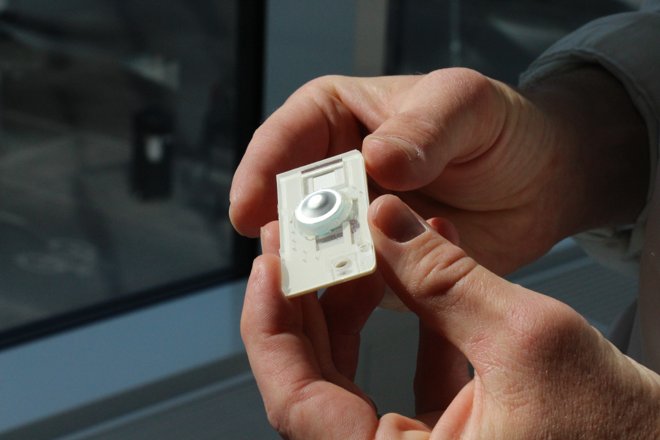From the sea of Åland to a self-test for lithium

It all started about ten years ago when Niclas Roxhed, Director of Medtechlabs and Associate Professor at KTH, started working with Olof Beck, Professor at the Karolinska Institute. Their collaboration led to the development of a product for self-testing blood, a so-called DBS card (Dried Blood Spot card), in which a specific amount of blood is dried, facilitating, for example, the measurement of drug concentrations. The card was launched in 2019 by the company Capitainer.
Shortyly there after Niclas Roxhed was invited to speak on a research-themed cruise to Åland.
“I was a bit sceptical at first, but I decided to come along anyway,” says Niclas Roxhed.
That’s where he met Lena Backlund, a senior physician and psychiatrist researching bipolar disorder at the Karolinska Institute. She listened to Niclas Roxhed’s lecture on the technology he had co-designed.
“She asked whether this technique could be suitable for patients with bipolar disorder who are taking lithium. This to enable measuring lithium levels in the blood much more frequently than what is done today,” says Niclas Roxhed.

Lithium is used as a mood-stabilising treatment for bipolar disorder, and it reduces the occurrence of episodes of depression and mania. However, the problem with lithium is that it has a very narrow therapeutic window.
“You can easily over- or under-dose, and the patients’ lithium levels must therefore be very carefully monitored. If it gets too high, it becomes toxic.”
For this reason, patients taking lithium needs to have blood tests in a hospital every three to six months to check their lithium levels and dosage. Lithium treatment is not possible in many countries where routine checks cannot be carried out due to limited resources and infrastructure.
The test that Niclas Roxhed and his team are now developing aims to enable patients with bipolar disorder to measure lithium levels in their blood themselves. So far, they have only developed a prototype that has not yet been tested on patients.
However, a study published earlier this year has tested the technique of taking blood samples with DBS cards and then measuring lithium levels in a clinic. A total of 39 patients on lithium therapy took part, and the results were promising, according to the researchers.
“We have been working on the technical development for a year and a half. In the autumn and next year, we will conduct tests in the affective clinic with lithium patients. The final phase would be to verify that this home sampling method works for this group of patients.”
Artikeln är en del av vårt tema om News in English.